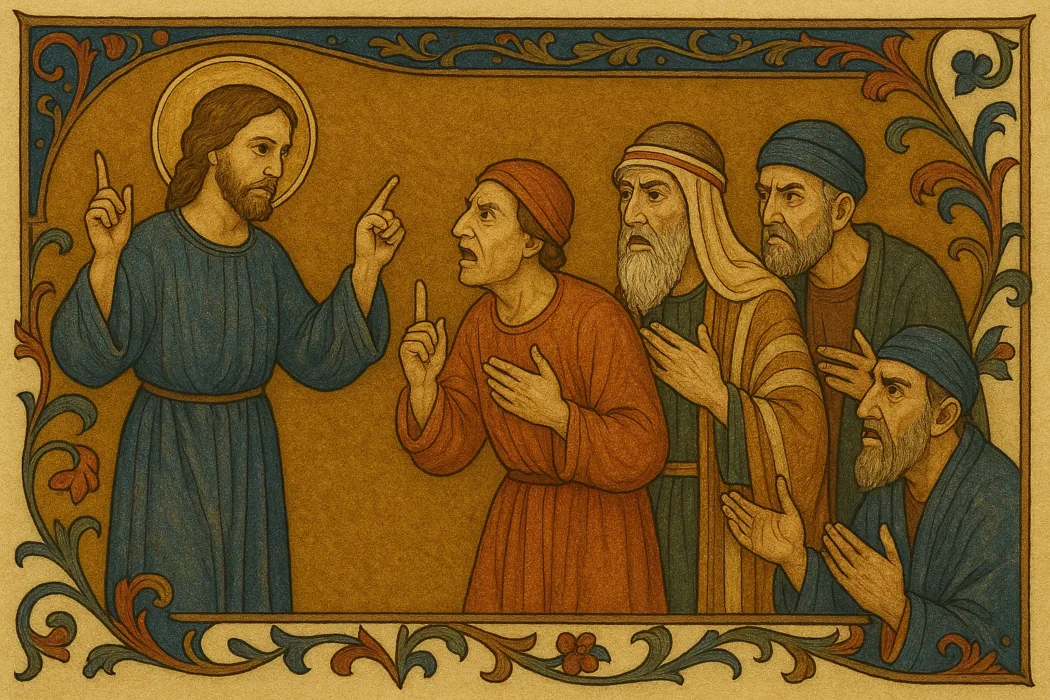It is pretty clear how God defines prosperity in the Bible. But the problem is not God’s definition. The problem is our thinking about God’s definition. You may have read the last post and disagreed with how God defines prosperity. I hope that you did. I also hope that you took some time to go study the original language and context for yourself. Because you will probably see as I did, that it is unmistakable what God’s plan is. It’s for us to have more than enough in every area of our life. The problem is that we have heard differently. Or we have seen such bad examples that we abandon the entire proposition of prosperity. This is understandable. Some people – especially “pastors” – do a great job of coming across atrociously on the subject of prosperity. However, remember that just because something is poorly represented, or taught badly, doesn’t mean it doesn’t exist. This is why we must have our own clarity on prosperity and what God really says about it. There are so many opinions and perspectives on everything. These judgements are constantly bombarding us and complicate our thinking on something that, for God, isn’t all that complicated. So, I’m asking you again, to suspend your disbelief, and to abandon what you think you know, or have decided about prosperity and the Gospel.
In Mark 7, there is an interesting exchange that Jesus has with the Pharisees:
6 Jesus replied, “You hypocrites! Isaiah was right when he prophesied about you, for he wrote, ‘These people honor me with their lips, but their hearts are far from me.
7 Their worship is a farce, for they teach man-made ideas as commands from God.’
8 For you ignore God’s law and substitute your own tradition.”
9 Then he said, “You skillfully sidestep God’s law in order to hold on to your own tradition.
13 And so you cancel the word of God in order to hand down your own tradition. And this is only one example among many others.”
In this passage, Jesus is excoriating the Pharisees for being upset at the disciples for not washing their hands before they ate. The Pharisees were traditionalists. They didn’t just believe in following God’s law. They believed that the traditions of the elders – that were not law – were also required. This is the ultimate problem. This wasn’t just a problem in Jesus’ day. This is a problem for us today.
The problem is often not what God says, but the traditions/ideas that people have about what God says. In fact, in the Catholic church, following the “traditions” of the church is something required for salvation. That is one of the greatest differences between Protestants and Catholics. Protestants – thanks to Martin Luther and the reformers – believe in what has become known as the Five solae. That is:
- Sola Scriptura (Scripture Alone) – The Bible is the ultimate authority in matters of faith and practice, above church traditions or human interpretations (2 Timothy 3:16-17).
- Sola Fide (Faith Alone) – Justification comes through faith in Christ, not by human works or merit (Ephesians 2:8-9).
- Sola Gratia (Grace Alone) – Salvation is a gift from God, given by His grace, not something earned by good deeds (Romans 11:6).
- Solus Christus (Christ Alone) – Jesus Christ is the sole mediator between God and man; salvation is found in Him alone (Acts 4:12).
- Soli Deo Gloria (Glory to God Alone) – All of life, salvation, and worship are for the glory of God alone, not for human recognition (1 Corinthians 10:31).
What does this mean for us? First, we don’t need a priest or pastor’s interpretation of scripture. Second, we are justified by faith alone in Christ, not by working for it. Third, salvation is a free gift from God, not earned by following rules, traditions or something else. Fourth, Jesus is the only hope for salvation. Fifth, everything is for God’s glory, not our own.
These ideas were popularized by Protestant reformers, but they reflect what Jesus is talkig about in Mark 7. Notice what Jesus says to the Pharisees about washing their hands in verse 8? “For you ignore God’s law and substitute your own tradition.” If you read the entire passage, Jesus goes on and he gives an example about honoring your father and mother and how they make excuses to not honor their parents because of their own ideas and interpretations. Verse 13 is especially challenging: “And so you cancel the word of God in order to hand down your own tradition. And this is only one example among many others.”
Why is this verse so challenging? Jesus clearly says to us that our thinking prevents God’s word from working in our lives.
What’s more important, what God says, or what you and I believe about what God says? Jesus says that we limit God working in our lives because of how we decide to think about what God says. Think about it this way for our purposes; God can have His definitions of prosperity. They can be material. But if you don’t agree with God’s definitions, your prosperity will be limited by your own thinking. The problem of prosperity is the negative thinking about wealth that you and I have inherited as a tradition. And this tradition is a limitation on our life that prevents us from living the life God created us for. The problem is never how God thinks, it’s how you and I think. And how you and I think is what interferes with God’s plan for our lives. That’s what Jesus is attempting to make clear to the Pharisees, and to us.

